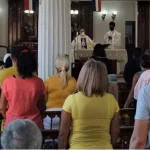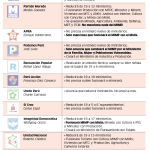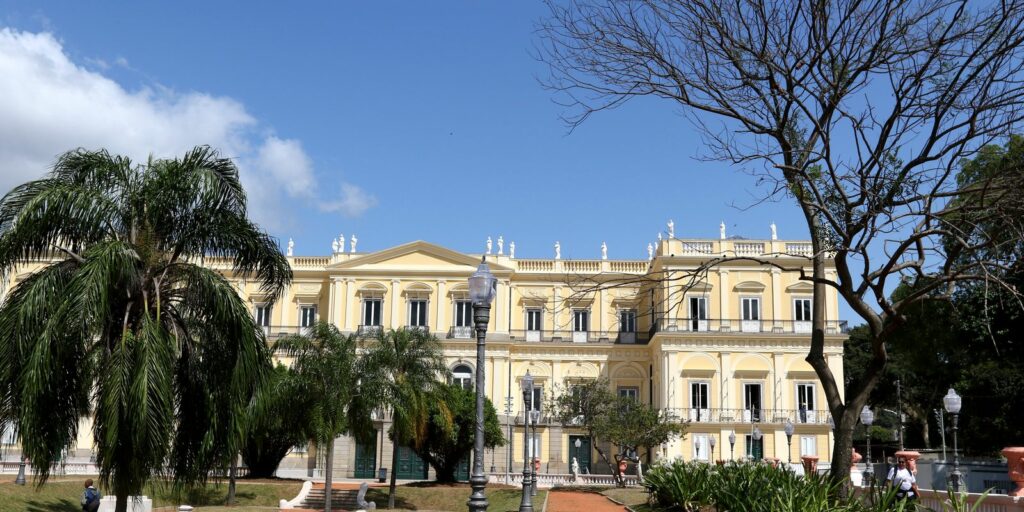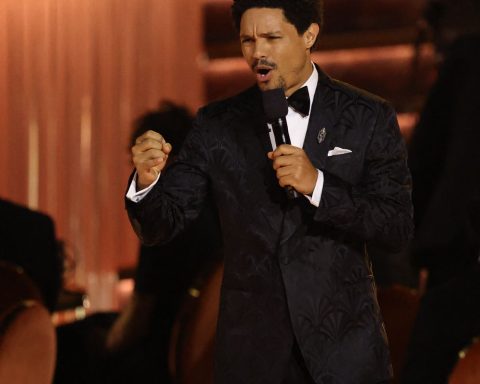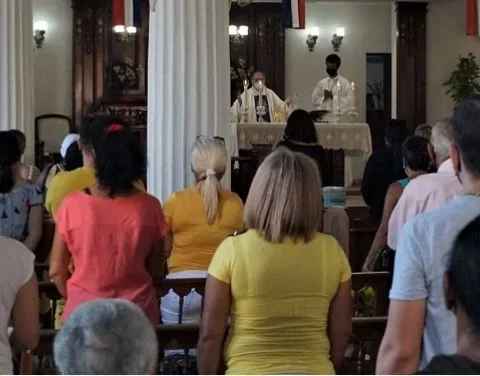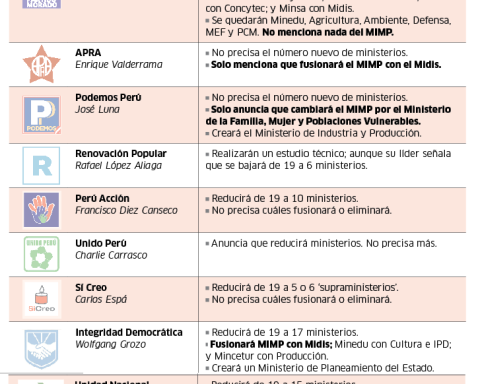“Today we do not have an agreement due to the pressure from Amarillos and the resistance of Renovación Nacional,” said the president of the Party for Democracy (PPD), Natalia Piergentili, at almost 10:00 p.m. She was the first to come down from the third floor of the Congress headquarters in Santiago. So, too, one of the first to get up from the table —annoyed— after ten hours of meetings.
He explained that Chile Vamos did not accept the last proposal that the ruling party put on the table. As they explained, it was about a group of experts –appointed by Congress– creating a non-binding draft on which a body made up of 70 elected representatives and the same 30 experts could later work. The second group would fulfill the advisory role. The difference with what the left had offered up to now is that the committee of experts could vote on the last stage of drafting the new Constitution: harmonization and transitional rules.
In the elaboration of a Constitution, the Harmonization commission has the objective of making a general and detailed review of each norm of the draft text, to ensure its technical quality and coherence, detecting possible omissions, inconsistencies, contradictions, repetitions or misspellings. And the transitory norms mark how and when some constituent proposals will be implemented.
The head of the Socialist Party, Paulina Vodanovic, went down with the rest of the left negotiators and assured that “we were about, as many of you know, to reach an agreement. But in the end there is always an obstacle to end up saying that the experts must be appointed by Congress and with full powers.” Meanwhile, he explained that they delivered to the group Chile Vamos más Amarillos “three or four different proposals in the course of the day.”
It was also against Amarillos: “What we see are advances that end up being torpedoed by Amarillos, whose only interest is that there are no elections (…), they want designated experts and they don’t want democracy.”
This accusation adds to the account of negotiators from the ruling party who assure that on Wednesday, December 7, when they were close to agreeing on a position, left and right, under the idea of 50 elected officials, the head of the Amarillos party in formation, Cristián Warnken, said that they were for the body to be appointed 100% by Congress and that, if a campaign was opened and they were 100% elected, “we are not going to sign and we are going to campaign against it,” described a leader of the government alliance.
For his part, after the long day and -according to the representatives- one of the most tense, the senator and president of the Independent Democratic Union (UDI), Javier Macaya, indicated that reaching an agreement “does not depend on the political bloc of Chile Let’s go ”. “We’ve been going back and forth for three months,” admitted Macaya, and described that he “permanently had the urge to repeat exercises similar to the ones they worked on.”
“I think what is relevant is the incidental role that those we consider experts should have (…). Do not repeat the constitutional process, ”he pointed out.
Raúl Soto’s speech and one of the most tense moments of the day
“I want to point out that this party president is not going to sign any agreement that is not a mixed commission,” said the senator and president of Renovación Nacional (RN), Francisco Chahuán, upon arriving at the former Congress building. “First, because it is a sign of moderation, second because we are not willing to repeat another constitutional failure and that history recriminates us as the failed constitutional trials.(…) The contribution of the experts is fundamental”, he explained.
The deputy and general secretary of RN, Diego Schalper, for his part, stated that they were seeking to pick up one of the ideas that had been pushed by the ruling party. It is about the body having more people directly elected by the citizens than experts appointed by Congress.
Amarillos arrived this Friday with a formula of 50 elected officials and 25 experts with the right to speak and vote. He did not garner support on the left.
The conversations on Wednesday, the last day of this week in which they had met in the former Congress, focused on the latest proposal from the ruling party: 50 elected representatives and another group of experts appointed by Congress with the right to speak, but not to vote. . This Friday the left was expecting proposals from Chile Vamos that would seek to empower the experts without giving them a vote in the entire process.
The same Wednesday there was talk from the UDI that some specific issues could be established on which the designated experts would have to vote.
One of the ideas that was put on the table by the president of the UDI, Javier Macaya, was the preparation of a binding draft. This means that the elected writers should write the new Constitution based on the basic proposal of the experts. Idea has not generated a floor on the left.
In addition, Renovación Nacional -according to members- continued to defend a mixed body, while specifying that their bench did not support any initiative that does not include voting experts. They knew this because, according to close people, Senator Chahuán and Deputy Schalper dedicated themselves during the Thursday holiday to calling each member of their benches in Congress. The poll, according to what they explained in the appointment, showed that there was no ground for a 100% elected mechanism.
During the day the negotiators went, as is customary, getting together at a common table and later separating in different places. Normally Chile Vamos, the ruling party, and Democrats and Yellows are separated into rooms. The difference was that on Friday Amarillos joined the block on the right. In one of the general meetings, Chile Vamos más Amarillos insisted on the 50-25 proposal when the issue had already been resolved.
“We would like to have an anchor in the center that allows us to visualize Chile in the next twenty or thirty years, ending with the anchor of the Yes and the No of 88,” said Chahuán upon leaving the series of meetings.
Some who were present explained that the proposal of the right generated great discomfort in the ruling party and thus also strong statements from their representatives. In reserve they explained that they were only capable of yielding with a number of 50 elected editors – less than the 155 that the Constitutional Convention had, or the 70 that the left has promoted – if the experts did not have a vote. “They hit themselves on the head,” said members of the ruling party, describing the moment.
Why? First, because they defended, “for a matter of democratic legitimacy”, that the number of elected representatives should be considerably higher than that of appointed. Added to the fact that in an election such as the senatorial, the smaller parties, such as the DC or those that make up the Broad Front, could be left out. In addition, this same type of election –according to the negotiators of the left–, underrepresents the large regions, where historically progressivism has greater opportunities.
In the midst of the tension that generated that the right plus Yellows insisted on a formula that they had already discarded, some thought that the table would break. “I felt like this was one step away from failure,” recounted one negotiator.
Raúl Soto (PPD), deputy and former president of the Lower House, took the floor. His voice broke, they described, he had to drink from his glass of water to start his words while there was silence. He said they were further away than ever, and he felt that the negotiators were speaking to their barras bravas and not to his country. “Here pragmatism and flexibility were required to reach an agreement,” they report that they were his words.
He explained that, from his perspective, if they end without an agreement it is a failure for the political world and a grave sign for the country. He said that if the political world was not capable of agreeing and giving certainty to the country, we could end up like Peru and that “populism and authoritarianism are just around the corner.”
He summoned Chile We are going to analyze for the last time the proposal of 100% elected, however, he added that if the answer was negative, the ruling party should open up to a mixed one. “The President opened up,” according to the deputy, when the President assured that “an imperfect agreement is better than not having an agreement.”
The rejection of Chile Let’s go to the latest proposal of the ruling party
After the intervention of the deputy Raúl Soto (PPD) it was decided to create a smaller table, made up of eight representatives. These were Diego Ibáñez (CS), Paulina Vodanovic (PS), Lautaro Carmona (PC) and Alberto Undurraga (DC). Meanwhile, the opposition was represented by Javier Macaya (UDI), Francisco Chahuán (RN), Gloria Hutt (Evópoli) and more at the end Zarko Luksic (former DC, currently from Amarillos) joined.
It was in that instance when the left handed them the proposal on 100% elected and expert advisers, but where the second group participated with votes in the elaboration of transitory norms and in harmonization.
At those moments of the night, members of the left saw a signing of an agreement coming. “We sent for the ties,” they described. However, after socializing it with the other negotiators, Zarko Luksic (Yellows) took the floor and informed the general table that Chile Vamos did not support the proposal.
Faced with this episode, the negotiators assured that on Sunday the small table could have a meeting, but without Luksic. “If there is an intransigence of this magnitude, it will be necessary to see if it is that with the parties of Chile Vamos, no longer with the movements, we can continue to bring positions closer,” said the head of the PPD, Piergentili. However, according to senior leaders, the meetings will continue on Monday.
“The rejection with love will have to give explanations,” said a representative of the ruling party between corridors, with clear annoyance for what they accused was intransigence from the right.
“We at the table have supported that the last option, not the first, is that if there is no agreement on the mechanism, we can refer to the mechanism in March with two options: a 100% elected body and a mixed one,” he added. the senator and president of the Democratic Revolution, Juan Ignacio Latorre. An idea that was also endorsed by the deputy and helmsman of Social Convergence -Gabriel Boric’s collective-, Diego Ibáñez.
The idea of an entry plebiscite begins to float
An idea that was around the corridors of the former Congress during the morning, but which gained more strength on the left during the day, when the representatives began to find it increasingly difficult to reach an agreement, was to call an entry plebiscite so that citizens can decide if they are for a 100% elected body or a mixed one, with experts appointed by Congress.
“If today we do not reach an agreement, there is no better survey than a plebiscite. Because in the end we cannot each be giving a different interpretation to the opinion of the citizenry”, Paulina Vodanovic (PS) announced on Friday morning.
“We at the table have supported that the last option, not the first, is that if there is no agreement on the mechanism, we can refer to the mechanism in March with two options: a 100% elected body and a mixed one,” he described. the senator and leader of the Democratic Revolution, Juan Ignacio Latorre.
“I think that in the face of this scenario the option of a plebiscite is open,” Diego Ibáñez seconded.
Close to the ruling party, they comment, in reserve, that a referendum is least convenient for them, this because of the low approval of President Gabriel Boric and because of the debacle suffered by the proposal for a new Constitution, which represented a large part of the leftist project .
Thus, on Wednesday they explained that it was a way of putting pressure on the talks. However, they admit that today they are pushing it as a real possibility, given the disagreeing circumstances.








